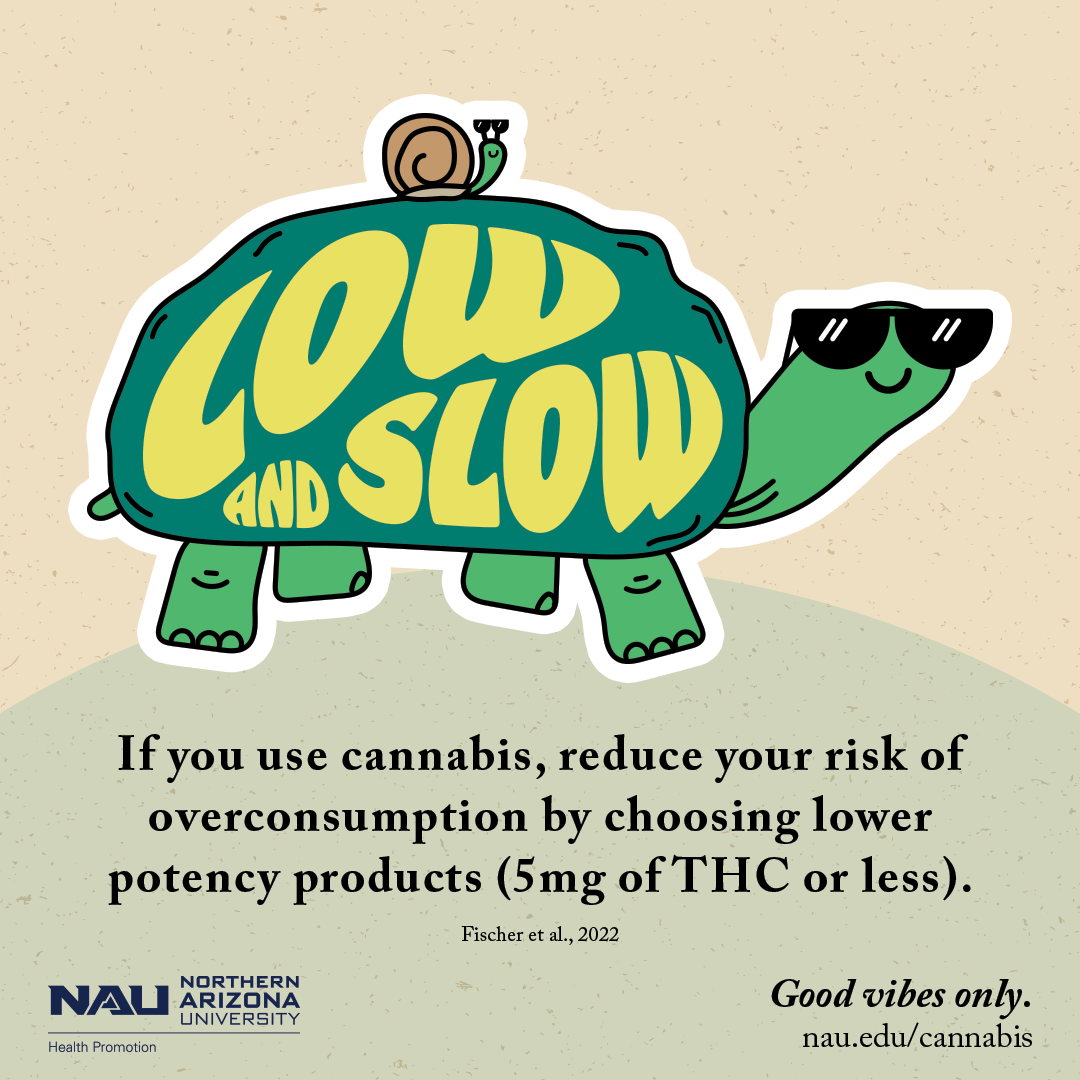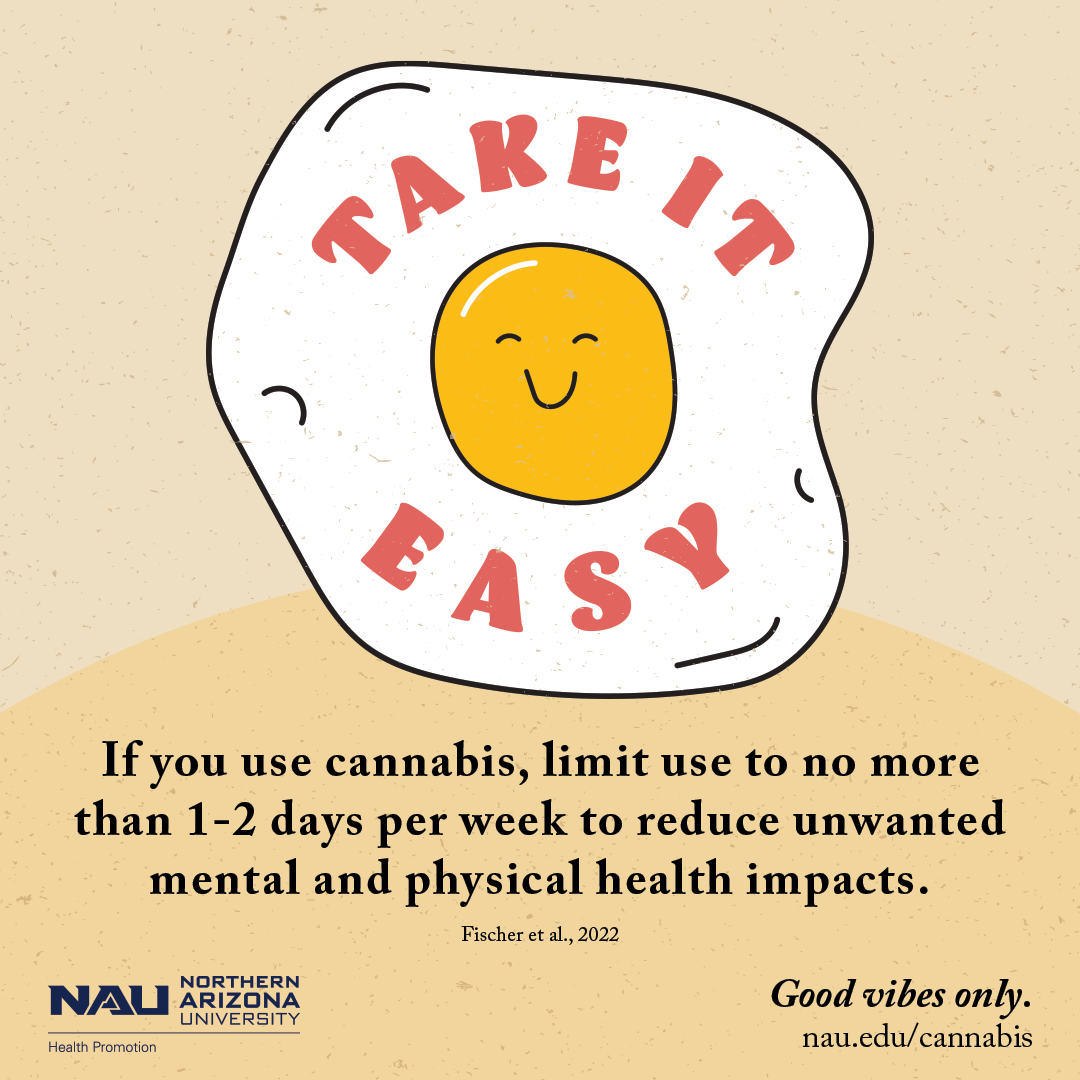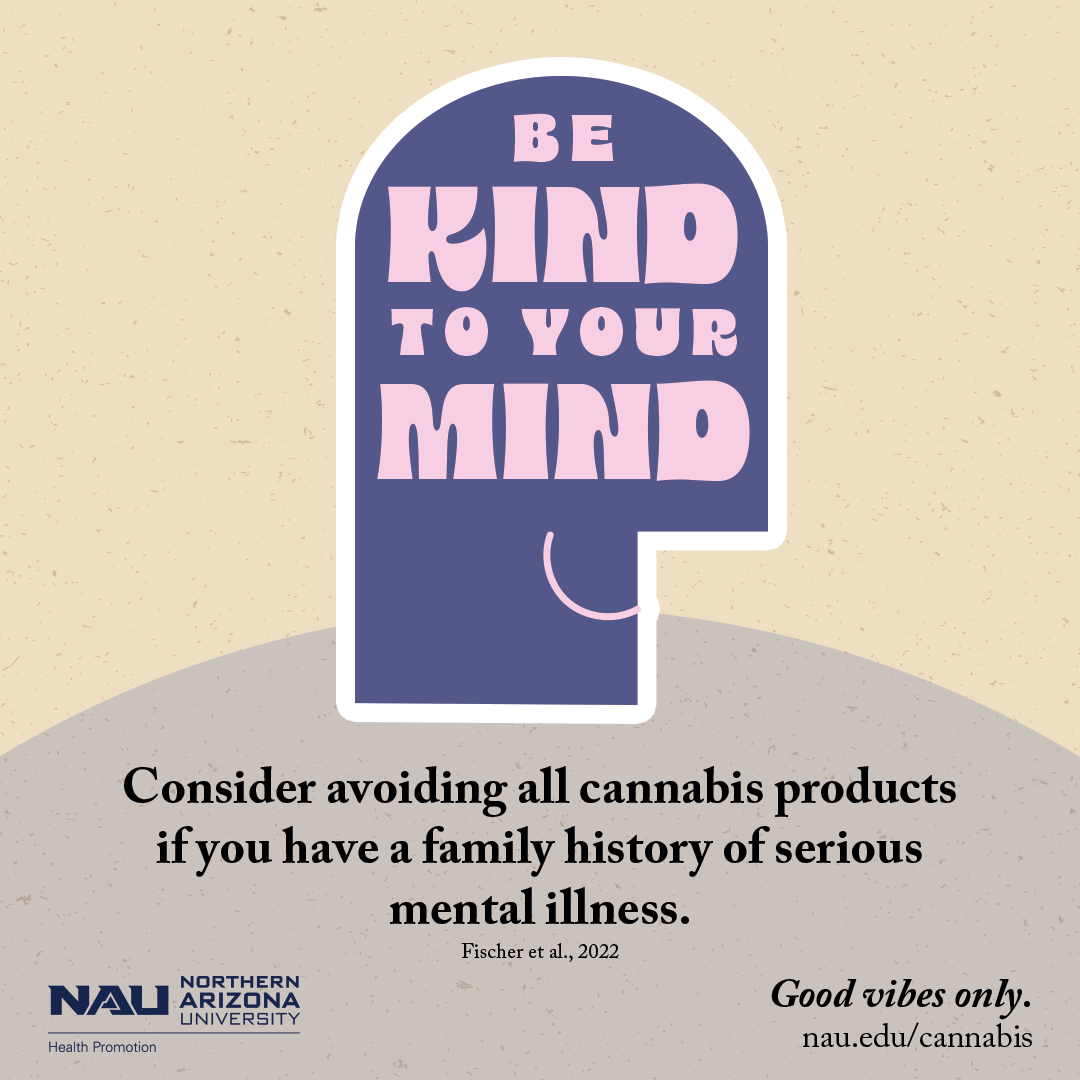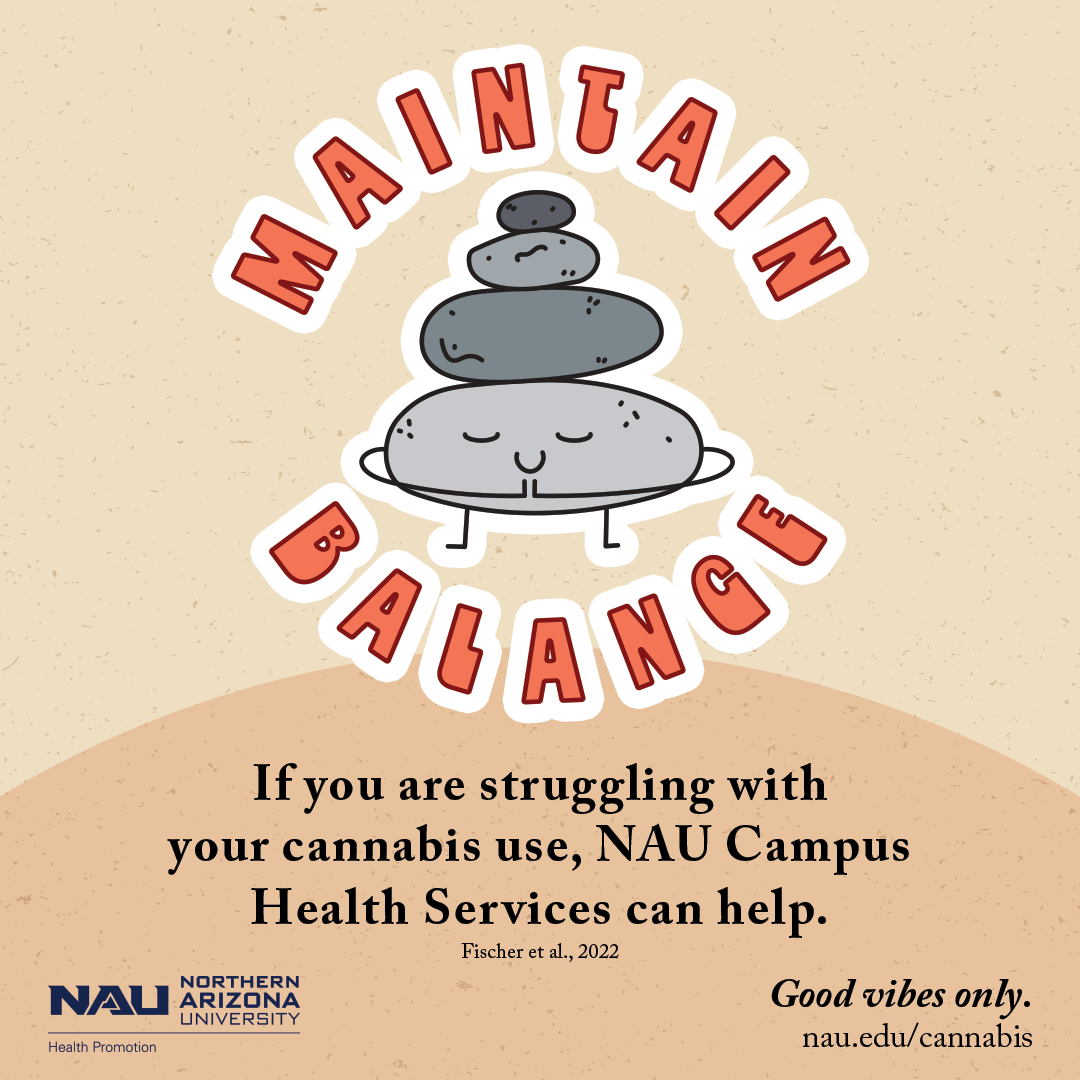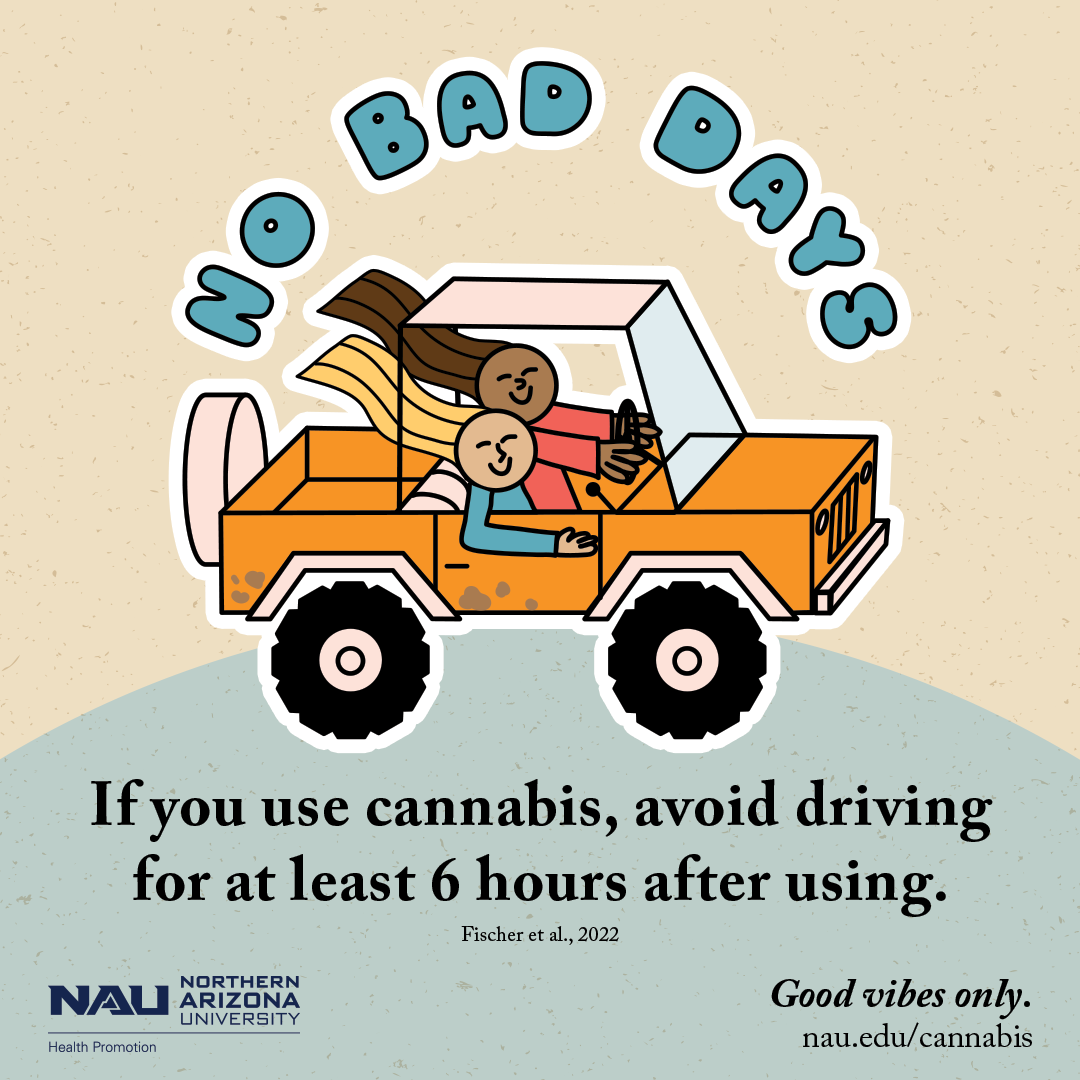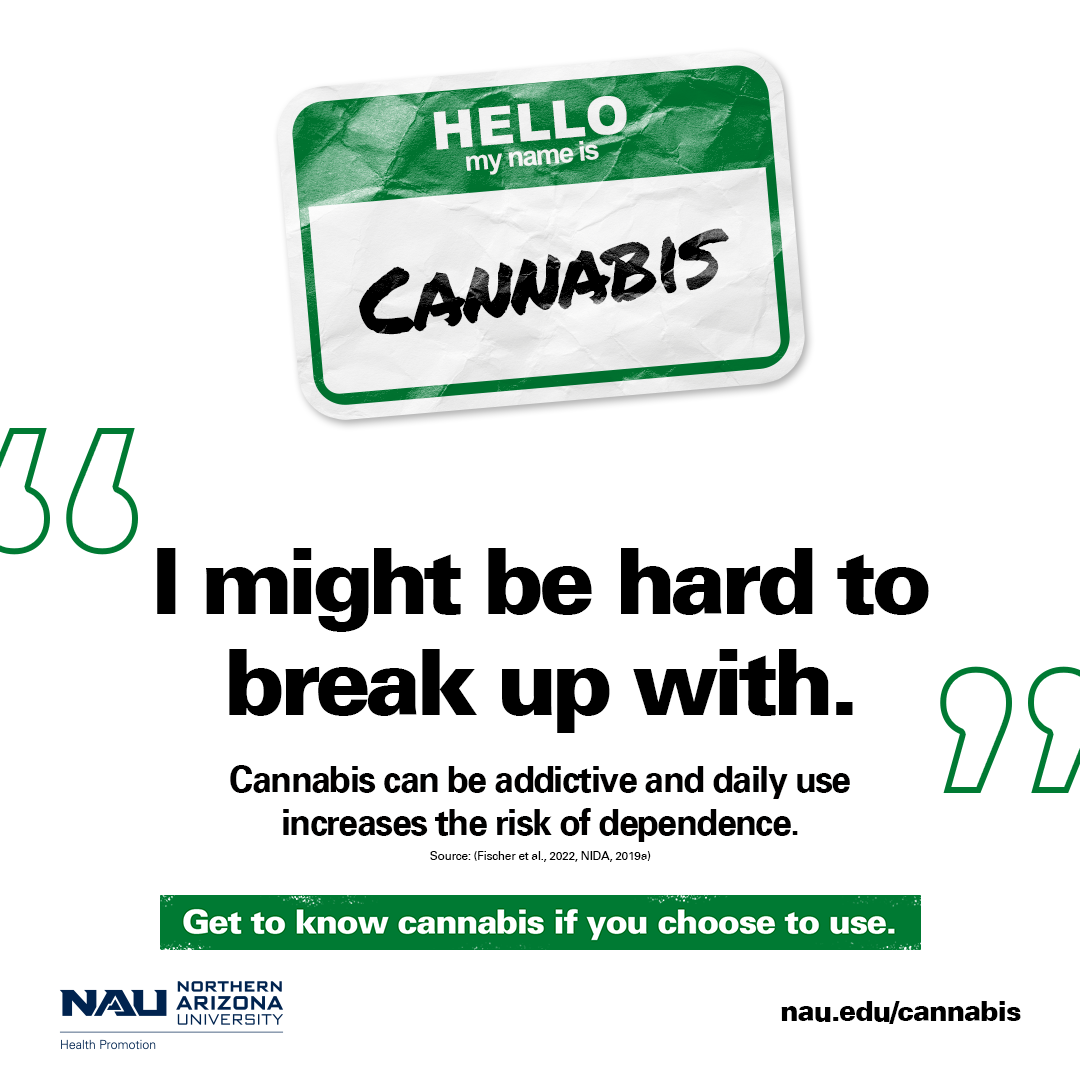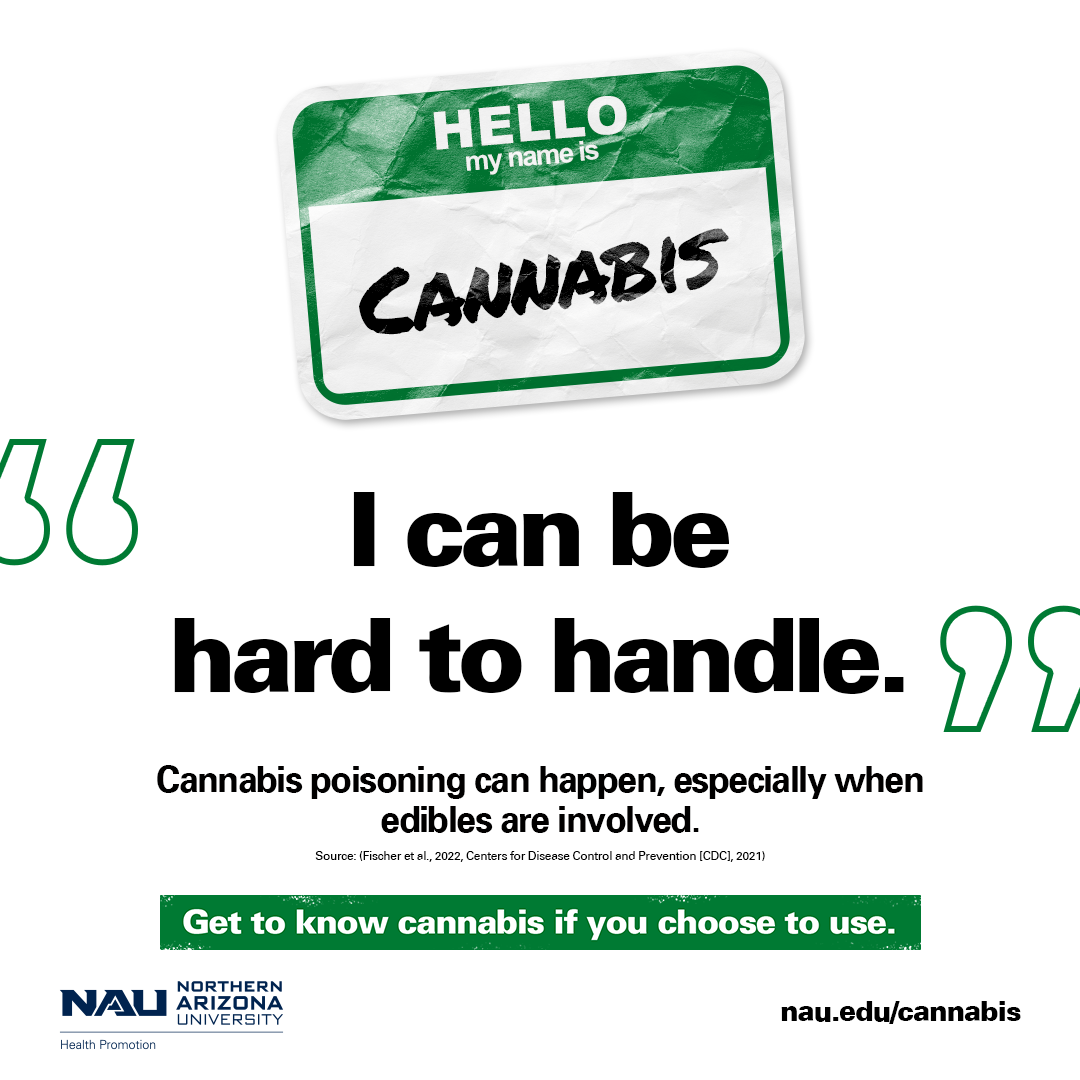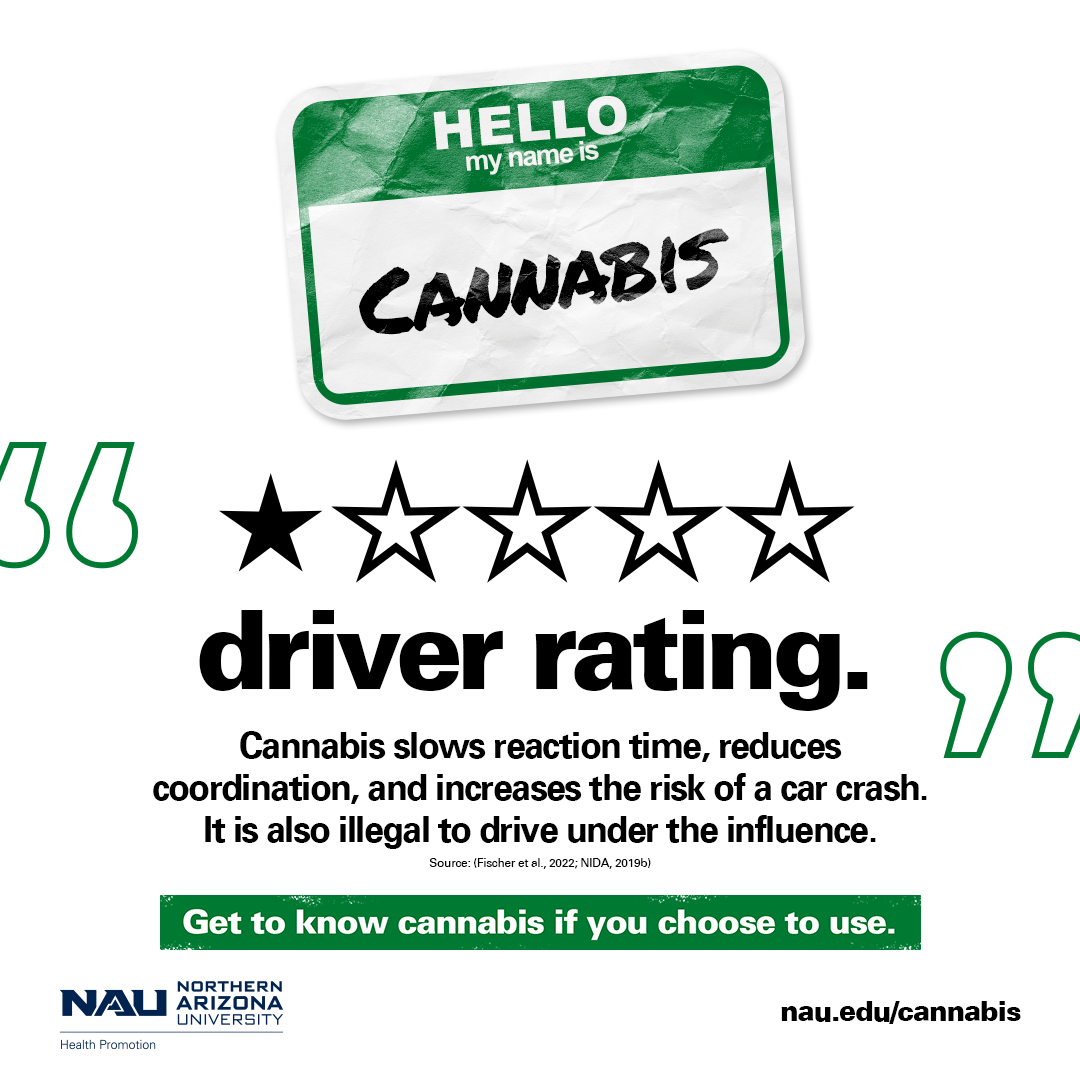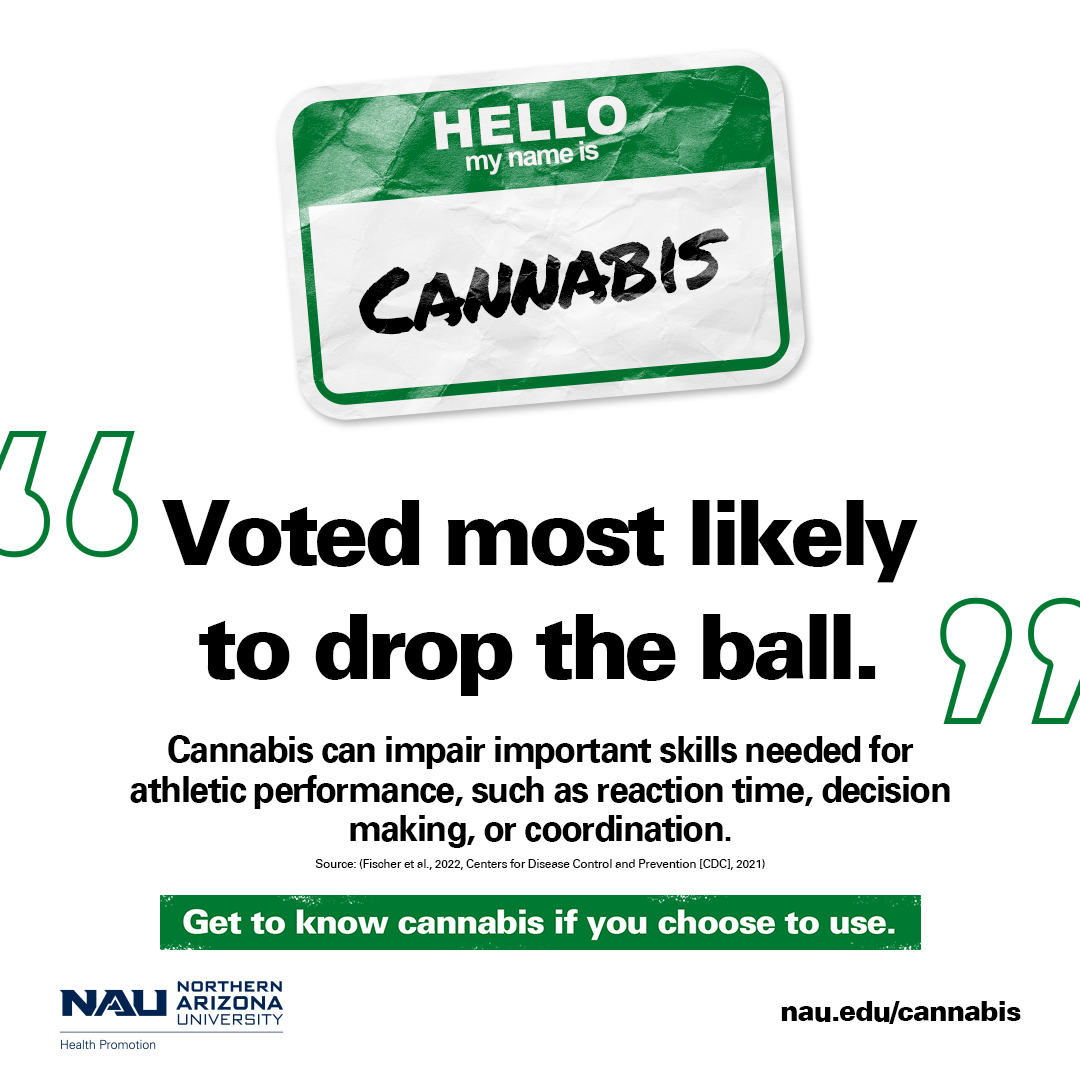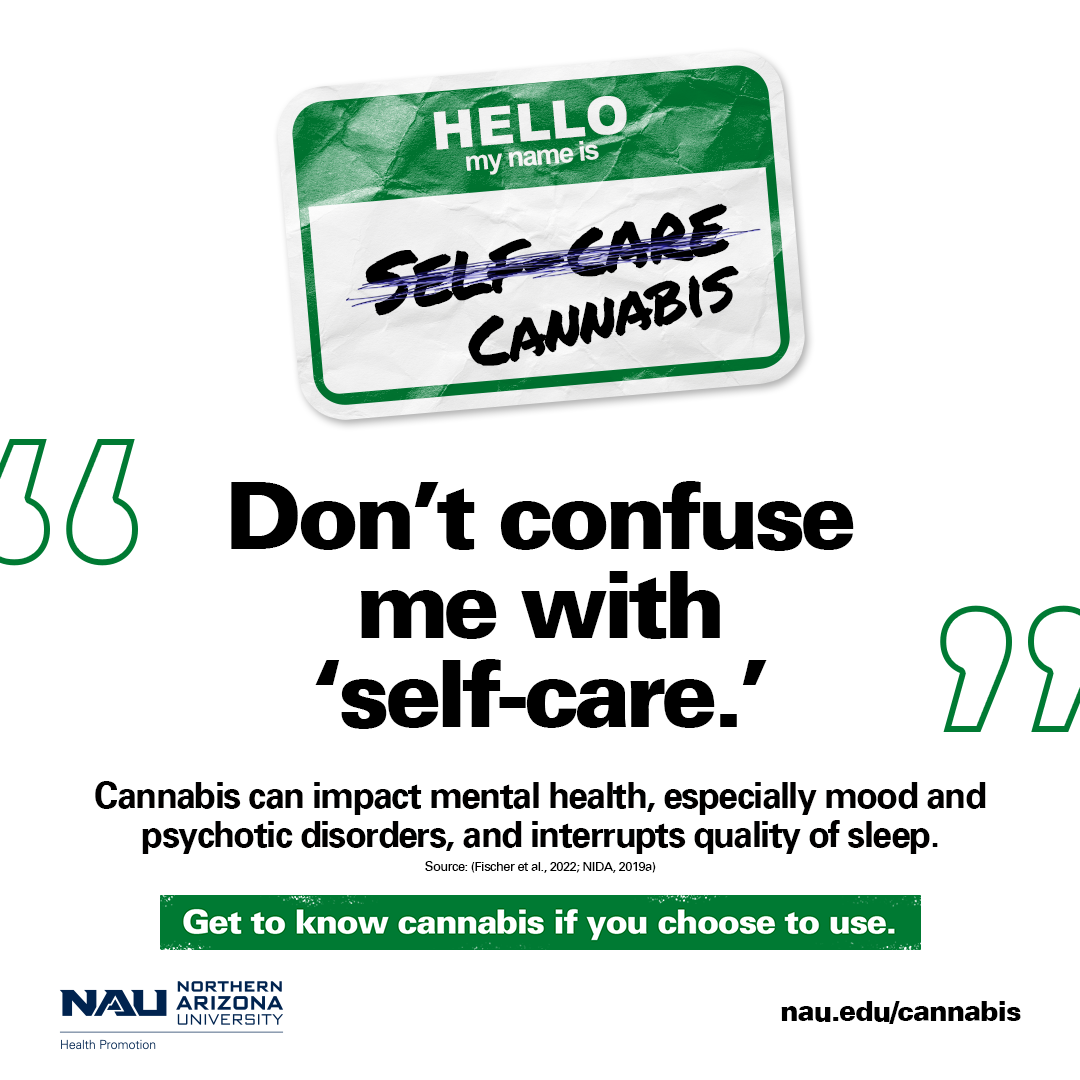Contact Health Promotion
Additional resources
- Read NAU's drug policies
- Request a Health Promotion presentation on alcohol, other drugs, or recovery.
Health Promotion
Alcohol and other drug programs
Receive non-judgmental, personalized feedback about your substance use, explore strategies to reduce your risk of experiencing negative consequences from your substance use, and get connected with on- and off-campus resources.
Vector AlcoholEdu + Sexual Violence Prevention
All new undergraduate students are required to complete these courses during their first semester. This includes online, statewide, and Flagstaff campus students.
An email with instructions for completing the required courses will be sent to your NAU email account shortly after the beginning of the semester. Make sure to complete the course by submitting the post survey.
Failure to complete these courses within 30 days from when you receive the initial Vector email will result in a $50 program fine.
For more information, please visit our Vector resources page.
Learn more here about all things weed, including the science behind it, important laws and policies relevant to students at NAU, harm reduction strategies, and more! Take this free, anonymous, 30 minute online module to be in the know about all things cannabis.
Harm Reduction and Impacts of Cannabis Use
Resources
How to help a friend Accordion Closed
Have you ever been worried about a friend’s substance use? You are not alone. And it’s not easy. The following tips can provide some ideas on how to express your concern to someone you care about.
- Be sure you are both sober when you talk.
- Start with “I”. Using an I statement to approach your loved one can help to prevent them from becoming defensive. “I care about your and I am really worried about your drinking.” ” I notice you’ve been drinking more than usual lately. What’s going on?”
- Gather resources. Before talking with your friend, gather campus and community resources so that you can help direct your friend to those if they are ready- you can find many of these below.
- Avoid “should”. Try to be non-judgmental and avoid telling them what they should or should not be doing. Don’t say this: “You should just quit drinking.”
- Focus on health and well-being rather than morality. Keep in mind that good people sometimes make unhealthy decisions.
- Ask questions. “How do you think your drinking might be affecting your well-being?”
- Find a private place to discuss your concerns.
- Let go. Realize that neither you, nor anyone else, can MAKE another person do anything, even if the situation appears dire.
- Support them. Let them know that you can help them get an appointment with mental health or substance use treatment professionals. But remember you can’t fix them.
- Consult the professionals. Health Promotion and Counseling Services can help you prepare for these tough conversations.
On campus resources Accordion Closed
- Campus Health Services includes medical, counseling, and behavioral health providers who are trained to assess substance use, provide non-judgmental feedback, and assist students in reducing their risk surrounding substance use.
- Health Promotion offers free screening programs and presentations throughout campus to help students assess their substance use. Visit the event calendar to find out when our next event is, or request a presentation for your group (NAU community only).
Flagstaff community resources Accordion Closed
- Northern Arizona Substance Abuse Services
- The Guidance Center
- Governor’s Office of Youth, Faith and Family: Prevention, Treatment and Recovery Locator Tool
- Coconino County Health and Human Services Addiction Services
Online resources Accordion Closed
Screening tools & calculators
- DrugScreening.org: Take this online drug use assessment to find out your risk level and get more information.
- The Virtual Bar: This website determines your BAC based on consumption patterns and risk reduction strategies and tells you how your night will go.
Read more
- Alcohol and Public Health: Learn about the impact of alcohol use on public health
- Drinking Levels Defined: What’s the difference between binge drinking and heavy drinking? Find out more.
- CollegeAIM (Alcohol Intervention Matrix): Information on how schools can address harmful and underage drinking.
- College Drinking Prevention: Statistics, fact sheets, and more.
- Prescription Drug Misuse: Overview of prescription drug misuse in the United Stated, including statistics and commonly used prescription drugs.
- Campus Drug Prevention: Resources to prevent drug abuse from the DEA.



